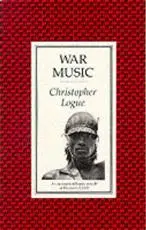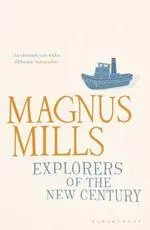Philip Ball is a freelance science writer. He worked previously at Nature for over 20 years, first as an editor for physical sciences (for which his brief extended from biochemistry to quantum physics and materials science) and then as a Consultant Editor. His writings on science for the popular press have covered topical issues ranging from cosmology to the future of molecular biology.
My favourite books of the decade are:
|
 |
The People's Act of Love by James Meek
James Meek's The People's Act of Love while beautifully written and plotted, might not seem an obvious candidate for an outstanding novel of the decade. But it has stayed with me as an exquisite piece of storytelling of the kind that one associates with the best pre-modernist fiction, and makes a compelling imaginative leap into a wholly unfamiliar milieu. Comparisons with Conrad and Dostoevsky were not amiss.
Buy the book
|
 |
Austerlitz by W. G. Sebald
It's not clear whether W. G. Sebald's Austerlitz is fiction or not, but it was my introduction to Sebald and to an entirely original and totally hypnotic style of writing.
Buy the book
|
 |
The Age of Wonder by Richard Holmes
Richard Holmes' The Age of Wonder is perhaps the only history of science I have read that has been genuinely exciting and inspiring to read, with something to enthral the reader on every page. All of these books have left their mark on my own writing.
Buy the book
|
Back to top
|
|
|
Mary Beard is Professor of Classics at the University of Cambridge and is a fellow of Newnham College. She is the Classics editor of the Times Literary Supplement, and author of the blog A Don's Life, which appears in The Times as a regular column. Her frequent media appearances and sometimes controversial public statements have led to her being described as "Britain's best-known classicist".
My favourite books of the decade are:
|
 |
Victorian Sensation by J. A. Secord
Years before the Charles Darwin anniversary in 2009, Secord brilliantly opened up the world of Victorian science - with this wonderful study of an earlier Victorian bestseller on the origins of man. The focus of Victorian Sensation is the controversy surrounding an anonymous best-selling book -- Vestiges of the Natural History of Creation -- published in 1844. It was a "sensation" for almost everyone in Victorian society from factory workers to the Queen (Prince Albert read it aloud to Victoria, and some people even suspected that he had written it). This is an engaging study in the History of Science, but also an important lesson for us all in how "scientific discovery" can enter popular culture - as well as a reminder that Darwin was not everything.
Buy the book
|
 |
War Music by C. Logue
The last volumes of Logue's modernist reworking of Homer's Iliad appeared since 2000 - a series of poems that will be as influential as Joyce's Ulysses. Every generation in the West for over 2000 years has reinvented Homer -- from Virgil, through Pope and Derek Walcot. Logue is renowned for writing a new version of Homer's epic story of the Trojan War without knowing a word of Greek (he has based War Music on a variety of different translations). Nonetheless he has given The Iliad its most powerful, and lasting, modern expression - reflecting on power and violence in the modern, as well as the ancient, world. This is a version of Homer to last as long as Alexander Pope's, maybe as long as Virgil's.
Buy the book
|
 |
City of the Sharp Nosed Fish by P. Parsons
An extraordinarily learned (and funny) recreation of life in ancient Roman Egypt - going beyond decades of dry scholarship. The sands of Egypt have preserved thousands of (fragmentary) ancient documents, some the traces of ancient literary texts. You can find a few of the lost verses of the poetess Sappho, for example, but most are the day to day documents of the ancient world - the shopping-lists, the account books, the private letters and complaints of ordinary people. These have been studied decades, but Parsons is the first to bring the material together into a vivid history of what life was like in one particular town in Egypt (Oxyrrhynchus, or "the city of the sharp nosed fish"). Even professional classicists are amazed at the richness of the evidence, which Parsons brings to life.
Buy the book
|
Back to top
|
|
|
Marcus Chown is an award-winning writer and broadcaster. Formerly a radio astronomer at the California Institute of Technology in Pasadena, he is currently cosmology consultant of the weekly science magazine New Scientist.
My favourite books of the decade are:
|
 |
The Vintner's Luck by Elizabeth Knox
A love triangle between a woman, a bisexual man and an angel in early 19th-century Provence. An extraordinary novel, surreal and shocking and pervaded by an aching sense of loss. Impossible to forget the image of the pitiful Xas, backed into a corner, ashamed to show his cruelly amputated wings.
Buy the book
|
 |
How Late it Was, How Late by James Kellman
Who would have thought that a novel written in Glaswegian, where every other word is "c**t" and the main character gets kicked by the police and blinded in chapter one would have won the Booker? But the story of the indomitable Sammy and his fight to get his "sight loss" recognised is brilliant - funny, moving and uplifting.
Buy the book
|
 |
Explorers of the New Century by Magnus Mills
Magnus Mills, the Brixton bus driver, plows his own literary furrow. In this novel, two teams of men - one with the names of IKEA beds - race to reach the undefined "farthest point". It has the most surprising twist of any book you will ever read (it involves the mules)!
Buy the book |
Back to top
Next >>> |
|
|



















